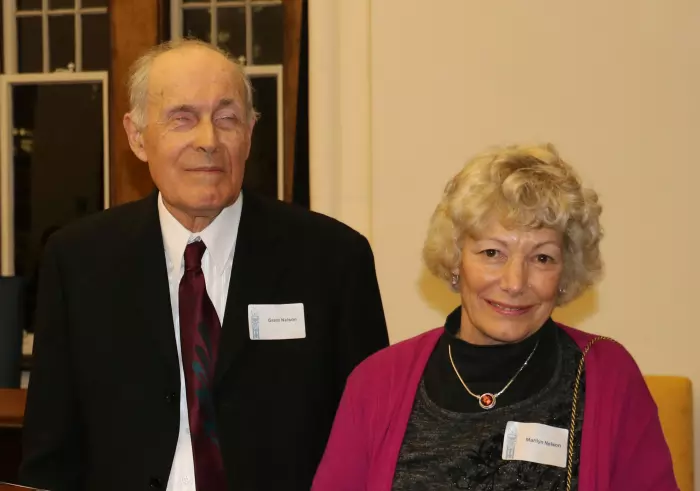Refusing donations for their charity the Gama Foundation gives Christchurch couple Grant and Marilyn Nelson the freedom to fund any issue that concerns them – right now, that’s governance in New Zealand.
In 1996, the Christchurch couple sold their building supplies business. Instead of splashing out on a glamorous lifestyle, the Nelsons created the Gama Foundation and began giving money away – more than $50 million so far, they say.
Grant Nelson says he cannot remember what the company sold for, but the new foundation was seeded with $10m.
Back in 2012, the foundation donated $3m to set up the Institute of Governance and Policy Studies at Victoria University at Wellington's school of government. Three years later, it gave the institute a boost with another $7m.
Grant Nelson says this didn't quite work out as intended, because the foundation had no say over the institute's research.
"Often new staff come along, or get different ideas, and we've found that it doesn't really work as well as actually giving money for a particular project.”
Now the foundation is funding specific projects.
Late last year, the foundation donated $987,000 to the Wellington School of Business and Government for three projects on governance.
Of that, $487,000 went to map the effect on policy of political lobbying, personal connections and financial contributions to political parties by wealthy elites.
Another $333,000 was for research into allegations of integrity violations by politicians. The institute will release an annual Political Integrity Index for New Zealand, covering politicians in both national and local government.
Another $167,000 was for research to support the reform of political party funding laws by Professor Lisa Marriott and Max Rashbrooke from the Wellington School of Business and Government.
Rashbrooke said the one-year project would include talking to people connected to political parties and donors to get a feel for the problems, the scandals and the reform options.
Large donations in New Zealand tended to come mainly from wealthy individuals, secondly from large companies, followed by trade unions, he said.
The bad old days of the 2000s, when anonymous donations were made through blind trusts, were mostly gone and he rarely saw donations from charities.
However, political parties did not have to give a donor's name for annual donations under $15,000. "So, you could have a charity that's giving the Labour Party $14,999 every single year and we would know literally nothing about that," Rashbrooke said.
The government is consulting on some changes, including reducing that $15,000 threshold to $1,500, he said.
Wealth and power concentration
Nelson's concerns can be boiled down to an increasing concentration of wealth in New Zealand. He says that as the rich grew richer, their control of political parties grew stronger.
Asked how this could be reversed, he says that's difficult to answer. "The problem is that everyone seems to recognise the problems, but no one seems to want to try and deal with basic reasons for all those problems."
By the end of the year, the institute should have some results to confirm or refute Nelson's arguments.
In the Gama Foundation’s early days it was focused on conservation. It bought blocks of native bush around Canterbury, put in tracks and signs, and often handed the land over to the Department of Conservation. If conservation has now taken a back seat in the foundation's activities, the passion is still there.
Nelson says he's worried about nitrate run-off from intensive farming contaminating Christchurch's water supply, and the foundation has funded research into this. "We once had the purest drinking water of any city in the world. That's all now threatened."
With a healthy term deposit of more than $28m, there's plenty in the kitty to carry on the Gama Foundation's philanthropy for many years yet.
In fact, Grant, who is legally blind, and Marilyn Nelson are keen to take things easy and retire.
The plan is to hand the charity over to a trustee company in the near future, Nelson said.
"I'm 75. With health problems. We do need to get this sorted out as quickly as we can."
This article has been updated to reflect the funding was for the Wellington School of Business and Government, not the Institute for Governance and Policy Studies.










